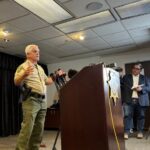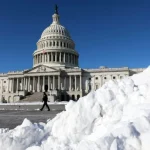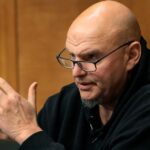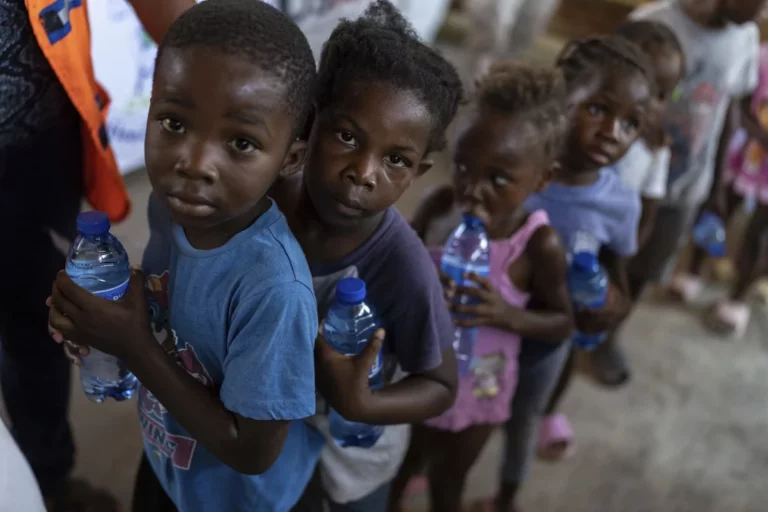
For 14 years, Jimmy Cherizier wore a badge. Now, toting an automatic rifle through Haiti‘s Capital, Port-au-Prince, he is prepared to lead his coalition of gangs to war.
“We are at war,” Cherizier shouted to a crowd of his followers, their identities hidden by ski masks, “any one of us can die.”
Known as “Barbecue,” Cherizier is the leader of the G9 Family and Allies, the primary gang alliance operating out of Port-au-Prince. His recent military rhetoric comes as 400 Kenyan Police Officers arrived last month to beat back the powerful tide of gang violence. Making up the first contingent of a United Nations-backed Multinational Security Support Mission, the arrival of international forces came a full 20 months after the shattered Haitian government requested aid in an effort to restore order to the country.
The streets of Port-au-Prince have long been abandoned, strewn with burned bodies as more than 500,000 Haitians have been displaced, many of them seeking asylum in America. Despite the chaos, Cherizier has tried to establish himself as a populist revolutionary, a voice for the people of Haiti.
“If they are not Haitian,” he said to the crowd, “I will consider them invaders.”

The Makings of a National Crisis
In March 2024, Haitian Prime Minister Ariel Henry embarked on a trip to Kenya, signing the agreement that allowed its government to lead the U.N. effort. While overseas, the G9 and Its Allies led a horde of armed gang members into two of the country’s largest prisons, freeing more than 4,700 inmates. At the same time, gangs overran the runways at Toussaint Louverture International Airport, barring Henry’s reentry into the country.
Forced to make an emergency landing in Puerto Rico, the gangs called for his resignation. On March 12, 2024, Henry relinquished his position, leaving Haiti without a leader. Since then, the only semblance of structure has emerged in the form of a “transitional council”: a feeble coordination of politicians looking for a permanent solution.
Back in 2021, Henry became Haiti’s de facto leader after then-President Jovenel Moïse was shot dead in his home. Henry’s rise to power had long been contested by the gangs as, with the support of the international community, he claimed the role of prime minister, unelected.
Moïse was a long time ally of Cherizier and the G9, allegedly funding their syndicate in an effort to curb rising dissenters of his administration.
“I spent 14 years in the police,” Cherizier told a correspondent from NPR, “it’s traditional politicians who want you to do the dirty job of destabilizing a government that is in place.”
According to Cherizier, the gangs did not begin as rogue criminal organizations but rather an extension of the Haitian government. He lived in the pockets of politicians as both a police officer and gang member. In 2018, police trucks arrived in Port-au-Prince’s La Saline Slums, where men in uniforms slaughtered civilians with rifles and machetes. Cherizier’s involvement in the infamous La Saline Massacre led to sanctioning from the United States Office of Foreign Assets Control.
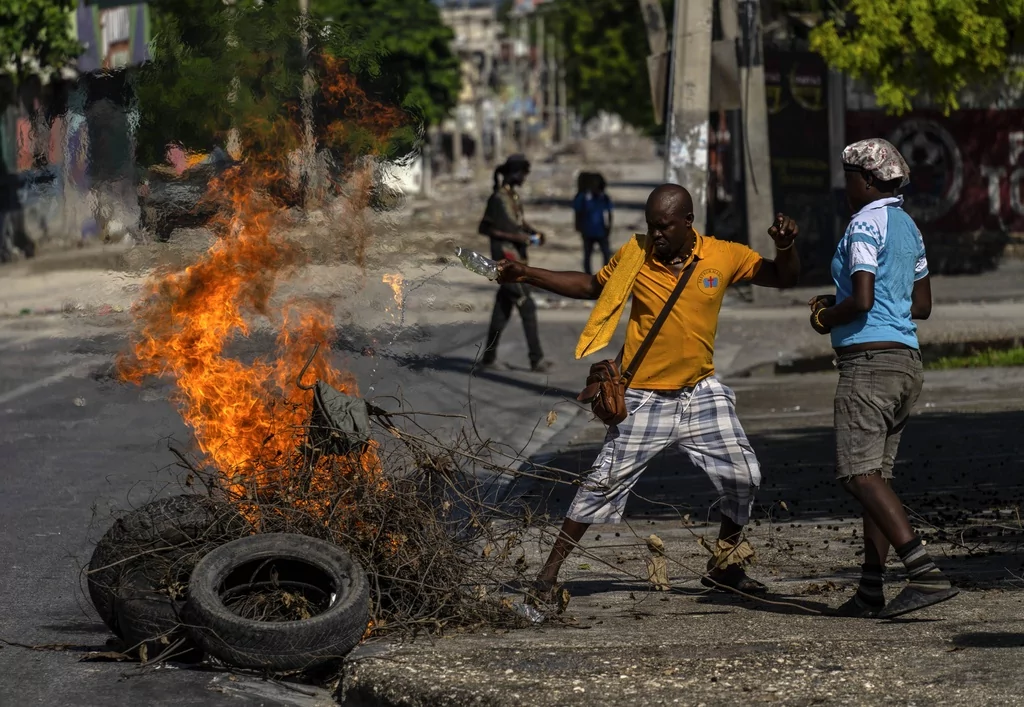
He was eventually fired from the National Police and joined the gangs where he, after Moïse’s assassination, consolidated a number of rival gangs into an alliance against Prime Minister Henry and the foreign intervention.
“It is better if we turned our guns on the politicians and the oligarchs,” he told NPR, “to use these weapons to give this country another independence.”
Kenya’s Show of Force and the Transitional Council
In the quiet suburb of Pétion-Ville, the Transitional Council has made its headquarters in the halls of an elaborate mansion. High above the struggling Port-au-Prince, Pétion-Ville boasts its own golf course, tennis club, and most importantly, a host of armed guards meant to protect its wealthy residents.
Led by Garry Conille, the interim prime minister, the Transitional Council is made up of seven voting members: politicians, civil servants, and a handful of religious leaders. All have denied requests from the gangs about representation, despite the power they hold over Port-au-Prince, and all have agreed not to hinder foreign intervention against these criminals.
Leslie Voltaire, a member of the council, believes its mission is to reestablish elections as soon as possible, while also suppressing the gang influence that could force Haitians to vote criminals into office.
“Our number one priority is to establish security in order to have rule of law,” he shared with NPR.
The solution, they believe, will only arrive through the Multinational Security Support Mission. Made up of Jamaica, Barbados, Guyana, Antigua, Barbuda, Bangladesh, Benin, Chad, and the Bahamas, this international effort is spearheaded by Kenya and funded by the U.S. and U.N. International forces will work in coordination with the Haitian National Police to curb gang power in the capital city.
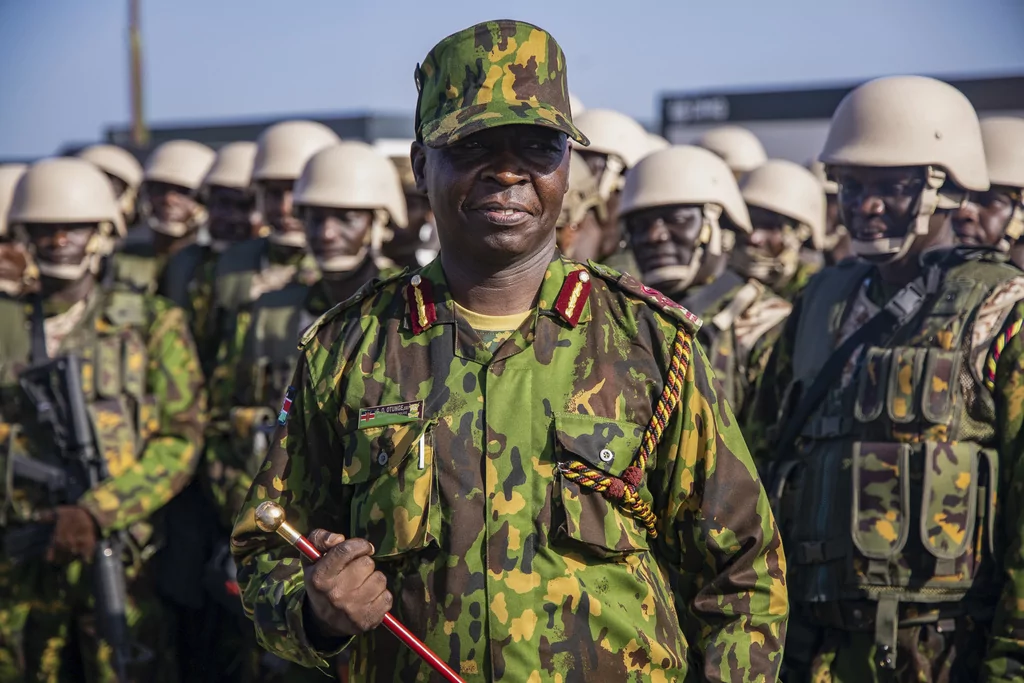
“We know that the U.S. will not take the lead, because they are afraid because of the election that is coming,” Voltaire said. “We accept the Kenyans, because we have seen in the agreements that their officers and their soldiers have to be vetted by the U.N. and then by the U.S.”
The same day they arrived in Haiti, the Kenyan police in Nairobi faced international scrutiny after they killed more than 20 civilians at an anti-tax protest. Many leaders, including members of the Transitional Council have grown concerned about their integrity.
“[The Kenyans] worry me,” Voltaire said. “We know that it’s not the best thing we have, but it’s what we have.”
The gangs expressed their own dissent with a show of force, parading automatic rifles in a march led by Cherizier, who spoke through peppering drum beats.
Half A Million Without a Home
While often whitewashing himself in echoes of Haitian populism, Cherizier’s actions as a brutal warlord have left Port-au-Prince burned, looted, and stained in blood. With all ties severed from the political elite, their previous source of income, each of the 95 gangs have turned to extortion and kidnapping civilians for ransom. The people Cherizier claims he advocates for have been the harshest recipients of his wrath.
“Our first enemy in the fight we are leading today is the people who are poor like us,” he told NPR, “the rich use them to fight us.”
Fearing violence, nearly 580,000 Haitians have been forced to flee their homes according to a report from the U.N. migration agency. Of that figure, 362,000 have relocated to other, relatively safer provinces that do not have the proper resources to sustain such population influx. Others have tried immigrating to the Dominican Republic but to no avail, as their neighboring country hopes to mitigate criminal expansion beyond the Haitian border.
Others have piled into rickety, wave-swept boats, bound for the shore of south Florida. In late June, President Joe Biden provided temporary protected status to an additional 309,000 Haitian migrants, replicating similar legislation from 2010 and 2022. This maneuver will protect Haitian migrants who arrived in America on or before June 3, 2024, from deportation, even if they arrived illegally.
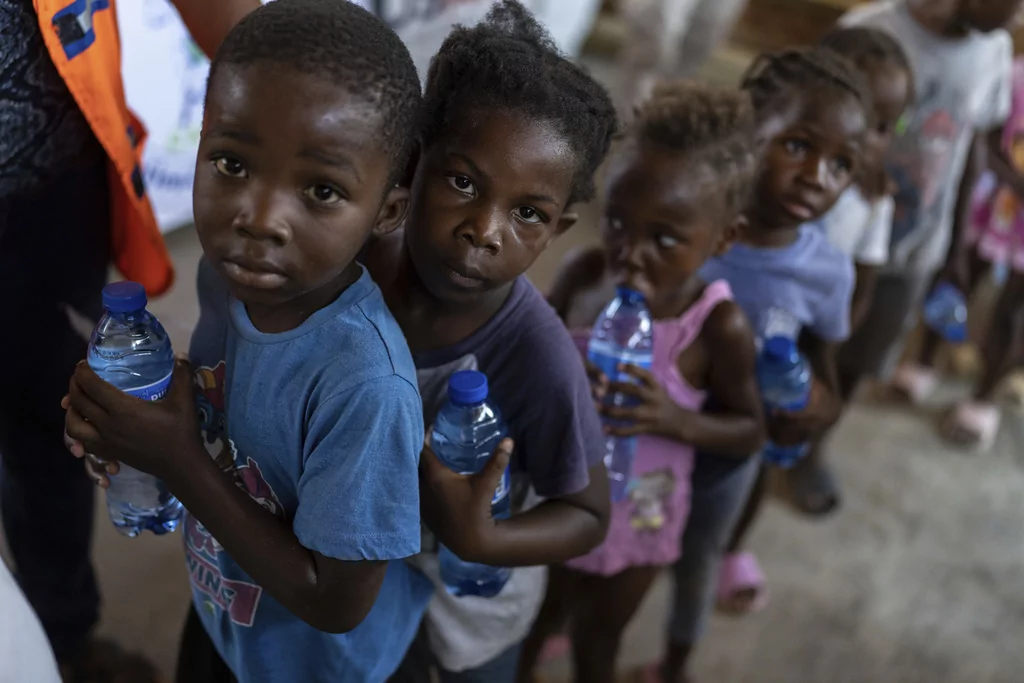
CLICK HERE TO READ MORE FROM THE WASHINGTON EXAMINER
“We are providing this humanitarian relief to Haitians already present in the United States given the conditions that existed in their home country as of June 3, 2024,” Homeland Security Secretary Alejandro Mayorkas said in an announcement. “In doing so, we are realizing the core objective of the TPS law and our obligation to fulfill it.”
Despite this recent legislation, many Haitian immigrants face significant hurdles relocating to America. As Cherizier and his gangs begin their likely violent altercation with international police, families, desperately searching for safety and relief, are running out of places to hide.


